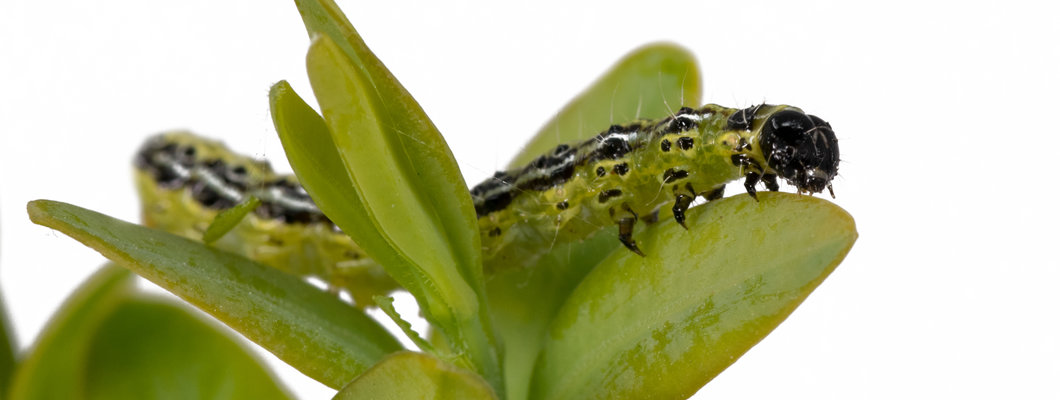
Recently I replaced twenty meters of boxwood (Buxus) hedge in my front yard with a beech hedge.In the Netherlands many boxwood plants have been dying due to a fungal infection, which has been raging through our country for years and has slowly, killed thousands of kilometres of boxwood hedges. At the Royal gardens of the Loo Palace alone, 27 kilometres of damaged boxwood was cleared, just a few years ago. Adding to the problems is the rise of the boxwood moth. Until 2010 the boxwood moth was an invasive exotic, but in the meantime it has become a completely established species. The moth lays its eggs on the underside of the boxwood leaves, from which caterpillars hatch and subsequently devour the boxwood.
My 92-year-old neighbour who watched me removing the hedge, looked quite bewildered at of my rigorous action. " Couldn’t you have sprayed them”, she said. To her this seemed the most logical solution. Well there are indeed pesticides on the market, against both the fungus (nothing seems to work really well) and the boxwood moth. But the sad thing is that birds, especially the great tit, the Eurasian blue tit and their offspring, who love the caterpillars of these moths, become the victims of this chemical “solutions”. Shouldn’t we be more aware what we are doing in our tidy gardens? Clear out the boxwood! It is time for a change. To be honest, I was fed up with the elaborate cutting of those formal box rows and spheres with its numerous small leaves anyway. In fifteen years, the boxwood roots had anchored themselves well in our garden, which resulted in healthy, physical workout for a few hours.
There is a great deal of attention for the use of pesticides in the agricultural sector and it is a good trend that their use will be further reduced step by step. But in the meantime, professional users must obtain a spraying license and have to comply with strict rules. Private citizens are allowed to use these chemical agents at their own discretion, including the popular glyphosate, better known as Round-up, which despite European attempts to ban it, is still very much available.
I regularly see people working with a pressure sprayer getting rid of weeds on their driveway and garden. Sometimes even in March, when almost nothing is growing and the black soil is apparently sprayed preventively. But agents like glyphosate, just like any other contact herbicides, must come in contact with the leafs of the plant in order to be absorbed, after which the plant dies in a few days, because its metabolism is blocked. So it makes no sense to spray this product on bare soil. It‘s senseless violence. Either it diffuses into the groundwater, or when it starts raining it rinses off in a ditch or stream. Much more can go wrong in private use, such as using too high a dosage. The concentrated agent is dissolved in water with a corresponding measuring cap. But many gardeners assume that such a small amount in 10 litres of water might not do the job. So to be on the save side they use a “little” more. Farmers and professional users of these chemical agents do not overdose, if only because of the costs. But when used for a garden or driveway you are not that much aware of the costs.
Gardening is a hobby, a very nice hobby. Why use poison? It serves no economic purpose whatsoever, except sponsoring the producer of these chemicals. I think it is a good thing that private use of these poisons is banned as quickly as possible. Let’s learn from nature and find alternative solutions. Learn to live with a little weed or remove it with a hoe. Be more tolerant. Look how beautiful some weeds bloom. Why should you eradicate everything you didn't buy at the garden centre? Let’s appreciate some spontaneity!
Sytze Keuning (keuning@bioclearearth.nl)
Published in the journal Bodem.